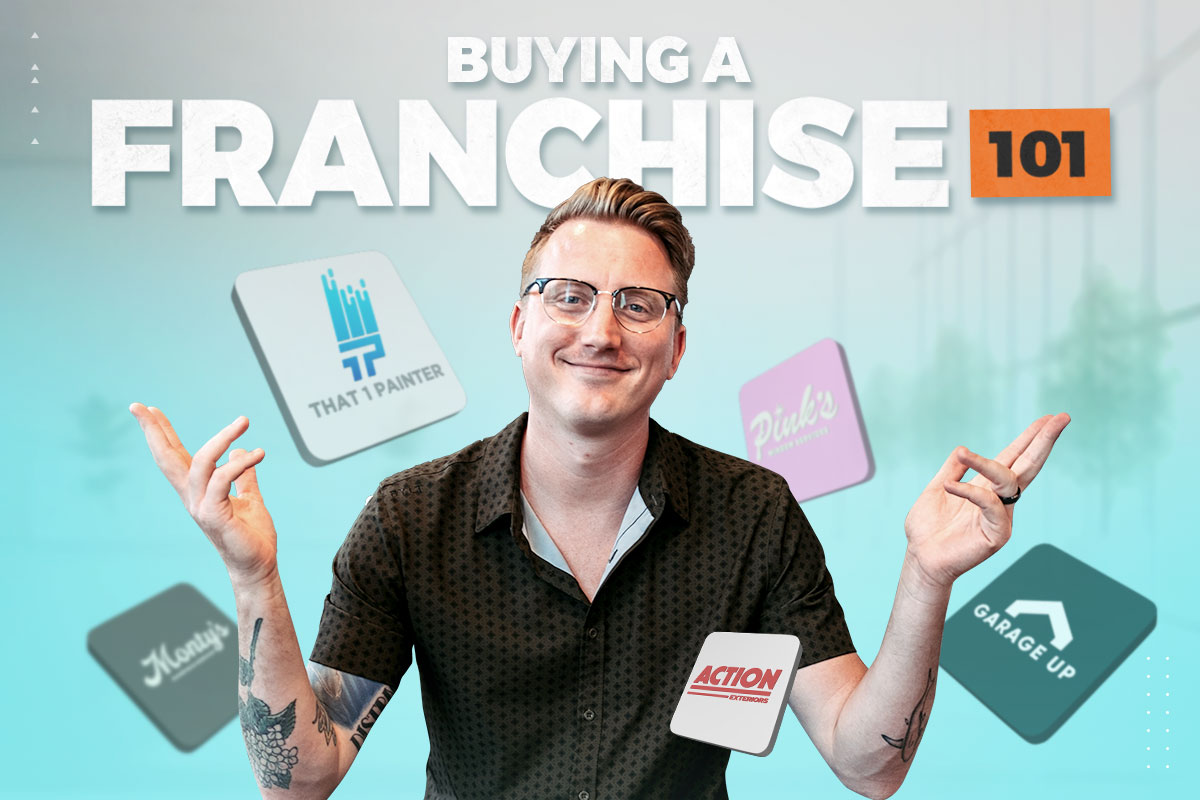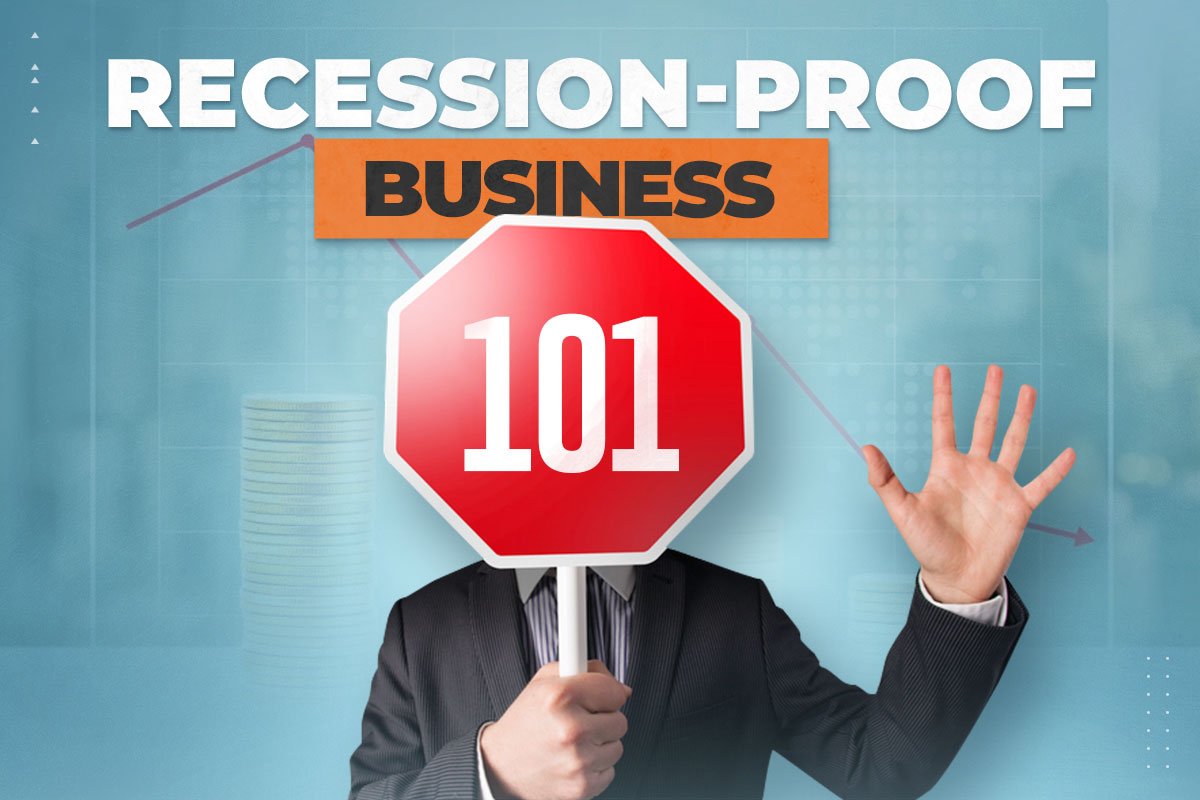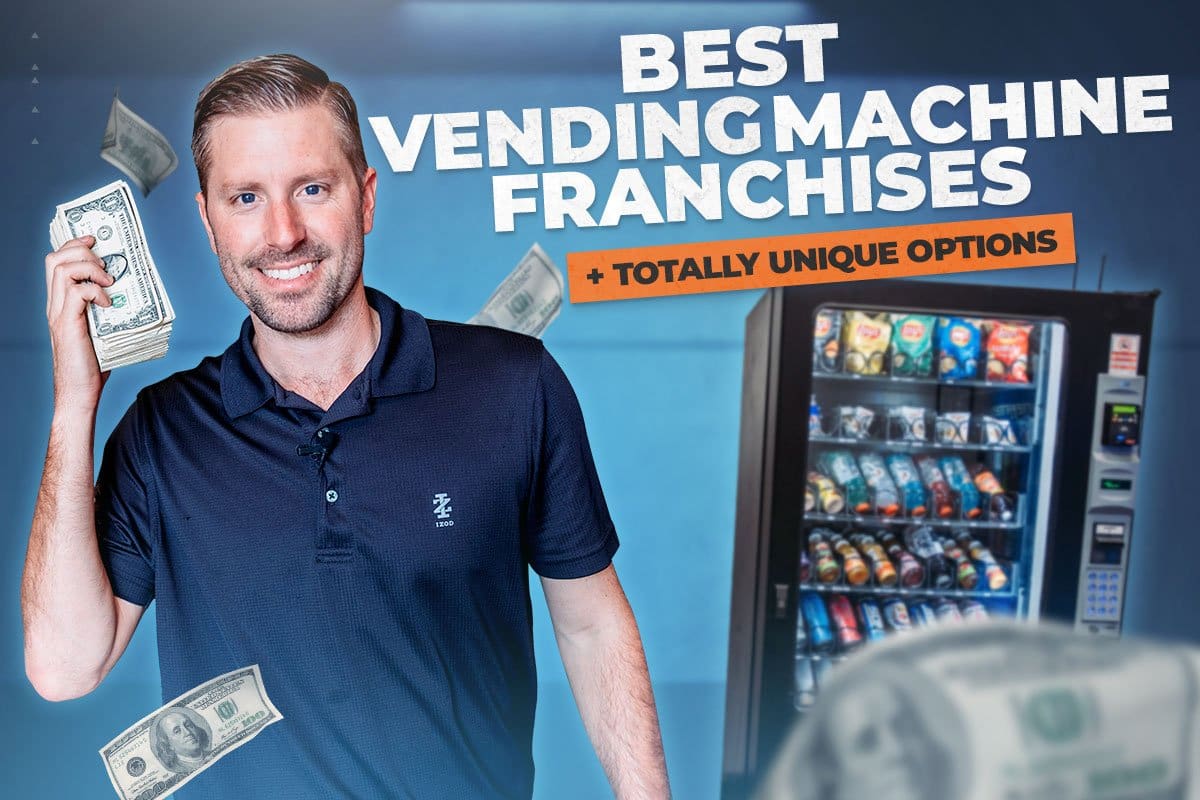Starting any business venture requires time and dedication, but the franchise process is different from starting a business or buying an existing one. In exchange for the brand recognition you get with a franchise model, you give up much of the decision-making power. You’ll also pay fees to the franchise headquarters.
We’ll show you how to buy a franchise with input from franchisors, franchisees, franchise brokers, and franchise consultants.
Tom DuFore, our preferred franchise development consultant, is the founder of Big Sky Franchise Team. He’s in the unique position of having experience as a franchisor, franchisee, and franchise consultant.
Together, we’ll help you understand what a franchise is and how they operate. We’ll cover the benefits and limitations of buying a franchise as well as how to buy a franchise when you’re ready. Then we’ll answer some frequently asked questions about how to buy a franchise.
You can either keep reading or click on any of the links below to jump to the section that interests you:
What is a franchise opportunity?

A franchise is a business model where the franchisor allows other business owners to run a franchise location by following their business processes. This includes using their suppliers and company name in exchange for paying franchise fees.
Tom explained that franchising has the following qualities:
- The business name is shared with multiple business owners.
- The franchise buyer uses someone else’s systems.
- The buyer pays a fee for the rights to use the business name and systems.
Check out our interview with Tom to learn more about the franchise business model:
If you already own a business and you’re interested in selling your franchise to others, contact Tom for an expert consultation.
How does the franchise business model work?
The franchise business model functions differently than many other business models. The franchisor and franchisees work together to create mutual success. Let’s look at some of the main differences between franchising and other business models.
Initial franchise fee

You’ll pay an initial franchise fee for the right to use the franchisor’s brand, systems, and intellectual property. The fee also reassures them that you have enough skin in the game to avoid damaging their brand’s reputation. Franchise fees can range from as little as $1,000 to over $1 million.
Royalties
You’ll pay ongoing royalties based on your sales for the ongoing use of intellectual property and the continued support you receive. These fees may be weekly, monthly, quarterly, or annual payments. Most are either a percentage of sales or a flat rate.
Operational guidelines
Franchisors provide detailed operational guidelines to ensure consistency across all locations. This includes everything from the store layout to customer service protocols. You’re required to follow them and can lose your franchise if you fail to comply.
Support systems
Franchisors offer voluntary and mandatory support systems for training, marketing, and human resources. They also host annual franchise meetings. Failure to participate in the mandatory events may result in additional fees or termination of your rights to operate as a franchisee.
Compliance
You must follow all of the franchisor’s standards and policies to keep the brand operating consistently across all locations. The franchisor has policies for handling violations of the agreement.
Make sure you understand the policies and strictly adhere to them. Rebels (like me) may not enjoy the strict adherence to rules that a franchise requires.
Pros and Cons of Buying a Franchise
As Mike told us, franchise ownership isn’t for everyone. Some people prefer to figure everything out, and some just want to increase their earnings without investing a lot of time learning.
Let’s look at the pros and cons of owning a franchise.
Pros
There are several clear advantages to owning a franchise:
- All systems in place
- Less to figure out
- Built-in mentors available
- More defined profit expectations
- Might have built-in customers
Steven Montgomery, the founder of ResiBrands, explained why he likes operating a franchisor and why franchises might like the model too. He told us:
Check out our interview with him below:
Learn more about That 1 Painter.
Cons
Owning a franchise also has its downsides:
- Higher startup costs
- Less room for creativity
- Business strategies might not work in your area
- Annual or monthly franchise fees
- Service area is often dictated by the franchisor
Keep reading to learn more about the franchise buying process.
How to Buy a Franchise
Buying a franchise works best when you follow the process below:
- Research franchise opportunities.
- Work with a franchise broker.
- Find the right franchising system.
- Review the franchise disclosure document (FDD).
- Establish how you’ll pay for the franchise and startup costs.
- Attend discovery day.
- Sign the franchise agreement
- Scout a location.
- Prepare to open your franchise.
- Operate the franchise
Step #1. Research Franchise Opportunities

There are all types of franchises. You’ll want to research which franchises are available.
Check out our blog about the most profitable franchises to learn more about highly successful franchises. We’ve also written extensively about franchising in various niches and industries.
Tom told us:
Opening a franchise is a huge commitment, and the franchisor thoroughly reviews each potential franchisee to make sure they meet the requirements to be successful. Conducting a franchise business review is crucial to understanding the financial aspects and average costs associated with opening a franchise.
You’ll want to know about typical franchise requirements and how to find good franchises. We’ll look at both to help you find the perfect franchise to start as a small business.
Typical Franchise Qualification Requirements
Prospective franchisees should be aware of the following requirements that most franchisors have:
- Credit score: Most franchisors require a minimum credit score. If you have a 680 or better, you shouldn’t have an issue. Use Credit Karma to check your credit score.
- Net worth: Most franchise owners require a minimum net worth of at least $100K, but estimates suggest that a new McDonald’s costs $2.3 million. It’s gotten so high that they only let new franchisees buy an existing franchise.
- Liquid assets: You need enough liquid assets to pay the franchise fee without financing unless you’re approved for franchise financing.
- Other income: If you want your franchise, you’ll need outside income. It can take six months to a year to start generating revenue. During that time, you’ll need to cover the costs of opening a franchise and covering your living expenses.
- Industry experience: You may need industry experience. If you don’t have it, you might want to go work in the industry before buying a franchise.
- Management experience: Franchise owners may want prospective franchisees to have management experience. It improves the likelihood of becoming a successful franchisee.
Make sure to have documentation of your financial situation and experience ready before researching franchise opportunities. Each particular franchise has different rules. Don’t spend a lot of time applying to become a franchisee if you don’t know their requirements.
Keep reading to learn how to use the International Franchise Association (IFA) to evaluate franchise opportunities.
Check the International Franchise Association
The IFA has a database that helps people find the right franchise out of more than 1,400 opportunities across the globe. The franchise search can be sorted by:
- Industry: There are 15 choices including cleaning, business services, senior care, and food-related franchises.
- Location: Search globally or by any continent other than Antarctica.
- Investment amount: The search allows you to filter the investment amount by $0 to $1 million. Make sure to reduce the highest amount unless you have $1 million to invest.
- Opportunities for the military: Some franchise business opportunities offer benefits for veterans.
Once you search, you can view different franchise business opportunities by age, startup costs, veteran discount ranking, or alphabetically.
Be aware that some companies try to hide their franchise fee behind the total investment. There are some with no startup costs, but they might have total investments of over $400K. Meanwhile, most include their website information, startup costs, and initial investment.
I mention this because some franchised business opportunities are more forthcoming than others. It’s always easier to work with a fully disclosed management team, and I would not consider a franchise opportunity that isn’t transparent.
You’ll want to go through the franchise website and establish whether they are:
- An established brand: Look at the number of followers on social media accounts and the reviews on sites like Google and Trustpilot.
- Oversaturated: Do they have too much competition in your area?
- Transparent about their fees: Some will openly disclose their initial fee, royalty fees, and marketing fees on their site. Others won’t.
- Offering training and support: Most franchises offer some business training and support to new franchise owners. It will normally be governed by the company culture and age of the franchise.
You can also try looking at easy-to-buy franchises.
Easiest Franchises to Buy
The easiest franchises to start include:
- Home cleaning: MaidThis
- Floor care: Wise Coatings
- Photo booth rentals: Photo Booth International
Choosing a franchise with a proven business model can significantly reduce risks. You’ll be able to follow a reliable blueprint that can lead to higher profit margins and a faster break-even point. Mike Andes, founder of Augusta Lawn Care, told us:
Once you’ve narrowed it down to one or two franchises, you can reach out to them to request the franchise disclosure document.
Step #2. Work With a Franchise Broker
Franchise brokers work with people who are looking to invest in franchise systems. These franchise brokers or consultants don’t charge the franchisee for their services but receive a commission from the franchisors. This may mean that they place the commissions earned above your best interests.
We work with several franchise brokers at UpFlip. Each takes a slightly different approach. Depending on what you need, you’ll want to contact one of the people below:
- Steve: He works with both restaurant and nonrestaurant franchise systems. Reach out to him if you want any type of franchise.
- Jenny: She doesn’t typically work with restaurants. However, she’s the best one to contact when you don’t know what franchise you want because she’s extraordinarily helpful. She has tests to help narrow down franchise opportunities based on your skills and interests.
- Jon: Jon is the most well-established franchise broker, but he doesn’t work with food franchises. I haven’t personally interacted with him, but others on our team have. Contact Jon to find out more.
Step #3. Find the Right Franchising System

You’ll work with your franchise broker to narrow your options. They’ll be able to help you understand franchisors and other franchisees’ experiences. They’ll also be able to determine whether certain franchises are a good cultural and procedural fit for your personality and lifestyle.
Consider how actively you want to be involved in the business, how much you can spend on a franchise, and whether you will qualify for most franchises. Jenny explained:
You’ll want to assemble documentation like your credit score, net worth statement, and cash-on-hand documentation. This makes it easier for franchisors to establish whether you financially qualify to run one of their franchises.
Step #4. Review the Franchise Disclosure Document
This step includes gathering information that isn’t readily available unless the company is a publicly held company. The Federal Trade Commission’s (FTC) Franchise Rule requires franchisors to complete a franchise disclosure document that includes 23 items.
Necessary Elements in a Franchise Disclosure Document
- Company history, predecessors, parent companies, and affiliates
- Officers’, directors’, and executives’ professional history
- Current and past litigation involving the company and major players in the organization
- Franchisor and management bankruptcies, if any
- Initial franchise fees and what impacts their costs
- Ongoing costs such as royalty fees or marketing fees
- The initial investment to get the franchise fully operational (in table form)
- Purchasing restrictions for equipment and supplies
- List of franchisee’s obligations including a table showing where each obligation is in the franchise agreement
- Terms and conditions of financing through the franchisor (if any)
- Any assistance the franchisor will provide including advertising, computer systems, and training
- Description of the geographical territory the franchisee receives and whether it can be modified
- How the brand’s trademark(s), service, and trade names may be used by the franchisee
- How the franchisee can use copyrights, patents, and other information
- What, if any, participation requirements are expected of the franchisee
- Restrictions on products and services the franchisee may participate in
- How to renew, transfer, and terminate the business arrangement and how to dispute conflicts between the franchisor and franchisee
- Public figures that are employed by the franchisor and how much they are paid
- Optional unit financial performance information
- Location and contact information of all existing franchise locations
- Audited financial statements for the past three years
- All the contracts that will be part of the formal contract including the franchise agreement, nondisclosure agreement (possibly), noncompete agreement (likely), and supplier agreements (common)
- Confirmation of receiving the FDD
Most franchises will have a contact form on their website. Others may request an initial consultation before providing their franchise disclosure document.
While you’re considering starting a franchise, you should review all this information before going for a discovery day.
Step #5. Evaluate Your Financial Situation

The next step is to evaluate your finances. Before you pursue franchise ownership, you’ll want to understand your overall financial health.
This involves figuring out how much money you have to invest. Make sure to include your savings and any other sources of funding.
It’s also important to check your credit score and financial history to see if you qualify for financing. You’ll want to:
- Gather tax returns, bank statements, and credit reports.
- Create a budget.
- Decide how much capital you have to dedicate to a small business franchise.
A financial advisor or accountant can help you evaluate your financial situation.
Step #6. Get Funding
Buying a franchise is similar to buying a business. However, getting a small business loan is easier for a franchise because it already has a proven record of success.
The franchisor may already have a deal with a bank to offer a small business loan to their new franchisee. You should have the following documents when you apply for a loan:
- A business plan
- Documentation of personal finances
- A copy of the FDD to show lenders the average annual income and financial risk of the franchise
- Proof of any assets you want to use for a secured loan
There are multiple options for funding when you decide you want to own a franchise. Some of the most common include:
- Liquid capital: Using cash, stock, and bonds to finance your business
- Secured loans: Using assets like a home, stocks, or crypto to secure a loan.
- Business partners: May not be allowed by your franchise contract
- Business line of credit: Revolving credit that lets you borrow as needed and pay interest only on the amount outstanding
- Equipment financing: Best for large purchases like kitchen equipment
- Traditional business loans: 3- to 5-year loans to buy a business
Check out our blog for a more detailed look at how to fund a business.
Step #7. Attend Discovery Day

Discovery day is an essential step in the franchise buying process. It’s an opportunity to meet with the franchisor and learn about their systems. During Discovery Day, you’ll want to ask questions, meet with existing franchisees, and immerse yourself in the franchise’s culture.
Discovery day is often held at the franchisor’s headquarters. You’ll likely meet the CEO, marketing team, and other corporate employees who will help support you as you become a franchisee and operate a franchise. You’ll also tour the headquarters and possibly an operational location to learn how the business runs.
A business owner should be looking for indications of whether the franchise ownership is legit or just trying to make money with the franchise fee. Indications that the franchise opportunity may not be as attractive as it is on paper include:
- Personality clashes
- Cultural differences
- Lack of preparation at the corporate office
- Statements that aren’t in the franchise disclosure document
- Not answering questions directly
- Failing to address concerns
- Pressuring you to enter a franchise agreement
If you’re ready to move forward, the next step is to focus on how to buy a franchise.
Step #8. Sign the Franchise Agreement
At this stage, you’re ready to be your own boss. You just need to review the franchising agreement. Franchise agreements are very similar to the FDD, but they are legally binding contracts between the franchisor and franchisee.
If you haven’t already been working with a franchise attorney or other franchise consultants, you should probably hire someone who is well versed in franchise law. Any required fees will be well spent in exchange for professional help when you’re learning how to start a franchise business.
Franchising.com lists the 10 provisions in franchise agreements. These elements are the parts of the FDD that both parties are contractually obligated to follow:
- Location or territory: What are your territory boundaries and exclusivity clauses? These will impact where to implement your marketing strategies and where you can do business.
- Operations: What operating procedures do you have to follow to own a franchise? The operations policies are a major portion of why people consider buying franchises. These are the best practices that take time and money to develop when starting from scratch.
- Training and ongoing support: What training and ongoing support is provided? Who pays for it, and how much does it cost? Each program may be different, but the goal here is for you to be capable of running the business when you open the doors.
- Duration: How long is the contract valid?
- Franchise fee or investment: What is the upfront cost, and what does it cover? You should probably calculate the payback period based on other franchisors’ experiences.
- Royalties or ongoing fees: What are the terms of ongoing fees, and what do they cover?
- Trademark, patent, and signage: How are you allowed to use the franchisor’s trademark, patent, logo, and signage?
- Advertising and marketing: What advertising does the franchisor pay, and what advertising does the franchisee pay? If they require more than 8% of revenue for marketing, you might want to be cautious.
- Renewal rights, termination, and cancellation policies: How is the franchising contract renewed or terminated by each party? How are legal disputes handled?
- Exit strategies: Does the franchisee have the right to put existing franchises up for sale? Does the franchisor have to approve the sale of a franchise? Does the franchise have to let the franchisor offer a buyback? Is the only way to sell the franchise through the franchisor?
This is the last real chance you have to back out of the agreement. Review the agreement documentation against the FDD with a legal representative. If there are any red flags, you may want to consider whether the opportunity is the best franchise to own.
Keep reading for information on how to buy a business location.
Step #9. Find a Location
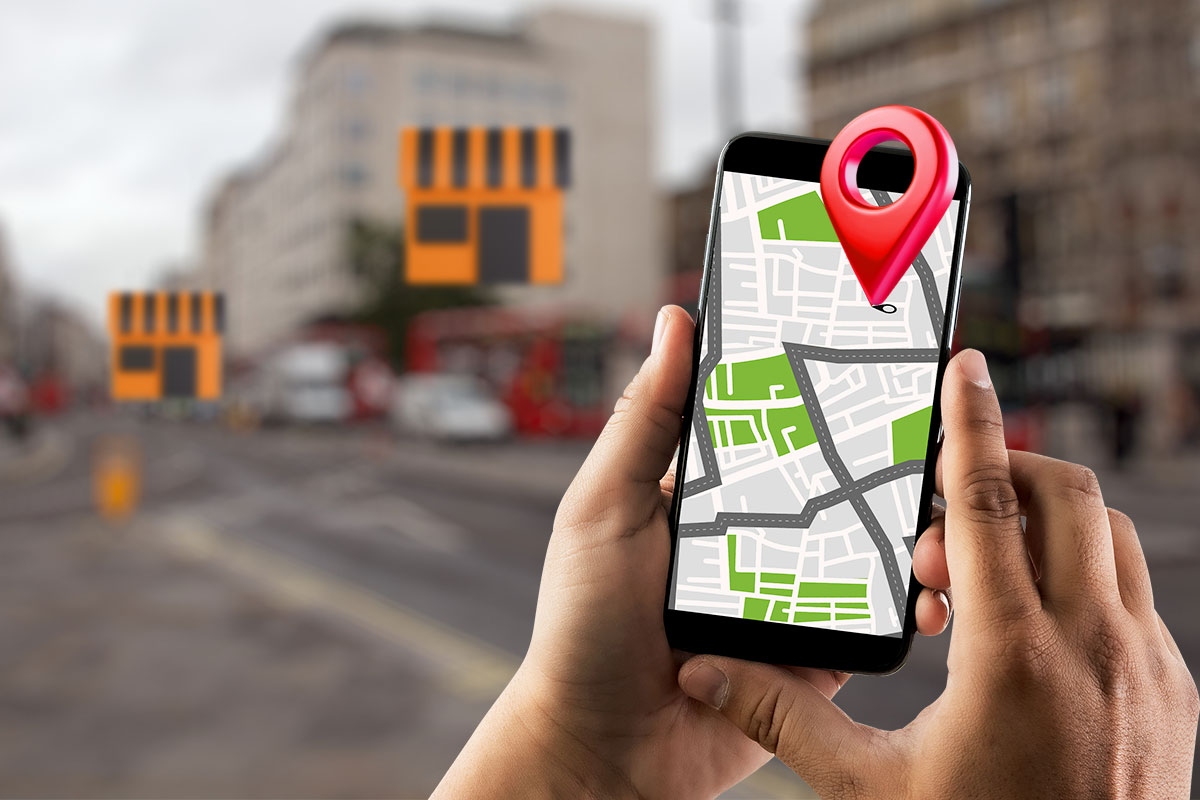
You’ll need to find a business location if the franchise agreement requires a physical location outside of your home. The franchisor should be able to advise you on the type of location or area of town to look for. They’ll help you with any factors that may impact your success.
Some franchises may tell you that increased foot traffic is most important, while another business system might suggest you go with the lowest cost per square foot. According to their 2020 annual report, McDonald’s owns 55% of the land and 80% of the buildings that franchisees utilize.
Different considerations will apply depending on whether you operate a retail establishment, office building, restaurant, manufacturing facility, or service and installation company. Read our blog about choosing a business location for more information.
Step #10. Prepare to Open Your Franchise
To open your franchise, you’ll need to:
- Get training and support.
- Build out the location.
- Purchase inventory.
- Set up marketing and advertising.
Get Training and Support
You’ll have to attend corporate training to learn how to operate the business. Corporate training can last anywhere from a couple of days to several weeks. These sessions typically cover:
- Where to find resources
- How to perform the customer-centric functions of the business
- The franchisor’s preferred software
- The accounting process
- Any machines that are unique to the company
- Marketing tasks
Build Out the Location
You’ll need to build out your business location. Fortunately, most of this step is just supervision. Construction crews will likely perform the majority of the work on your new location.
The layout may be driven by the franchisor or by you. Make sure you follow any requirements the franchisor has.
Purchase Inventory
The corporate office should specify the opening inventory, but you must purchase inventory. Afterward, they might allow you to make decisions about how to run the most profitable franchise in your location. They might also fully automate the inventory process.
Set Up Marketing and Advertising
Each franchise will have different marketing and advertising requirements. Some franchisors handle all the marketing and charge you royalties, while others oversee national marketing and provide you with procedures for the local equivalent.
You may need to set up social media and search engine ad accounts. There may also be press releases and other marketing initiatives where you’ll have to represent your franchise operation.
Step #11. Operate the Franchise
Once you reach this stage, you’re just operating a business like any other. You’ll be serving customers, managing employees, and handling business tasks like accounting.
We’ve conducted a ton of interviews with franchise owners. For instance, Sanford Booth runs a successful Big Frog franchise and makes over $500K a year printing T-shirts. Check out our interview with Sanford for more insights on how to own a franchise:
How UpFlip Can Help You
UpFlip helps small business owners succeed in a number of ways:
- We provide franchise information based on our own independent research. We also conduct interviews about low-cost franchises and profitable companies.
- We highlight preferred franchises such as Wise Coatings and Photo Booth International.
- We offer referrals to franchise brokers to help you buy a franchise.
- The UpFlip Academy includes startup courses taught by successful business owners.
- We’ve partnered with Big Sky Franchise Team to offer franchise development opportunities if you’re ready to become a franchisor.
Buying a Franchise FAQ

Should you buy an existing franchise?
Yes, if it’s profitable. When you buy an existing franchise, remember to ask a lot of questions.
Some franchises, like McDonald’s, will only let new owners buy an existing franchise. They want successful, experienced franchisees to open new stores.
Ask the following questions before buying an existing franchise:
- Why are you selling your franchise?
- How long have you owned the franchise?
- Why did you originally buy the franchise?
- What’s the annual gross revenue? Is it growing or shrinking?
- How much profit have you made over the years? Is it growing or shrinking?
We include these questions and more in our blog about questions to ask when buying a business. I suggest reading it for more information on why it’s important to ask questions.
What investment costs and franchise fees should I consider?
Initial investment costs occur before the franchise earns revenue. Meanwhile, franchise fees are what you pay directly to the franchisor. Initial investment costs can include:
- The franchise fee
- Forming an LLC or corporation
- Business licensing
- Buying or renting a location
- Remodeling
- Purchasing equipment
- Purchasing inventory
- Software not provided by the franchisor
- Furniture for the franchise location
- Insurance
- Marketing
- Travel costs
What if I want to buy a franchise without money?
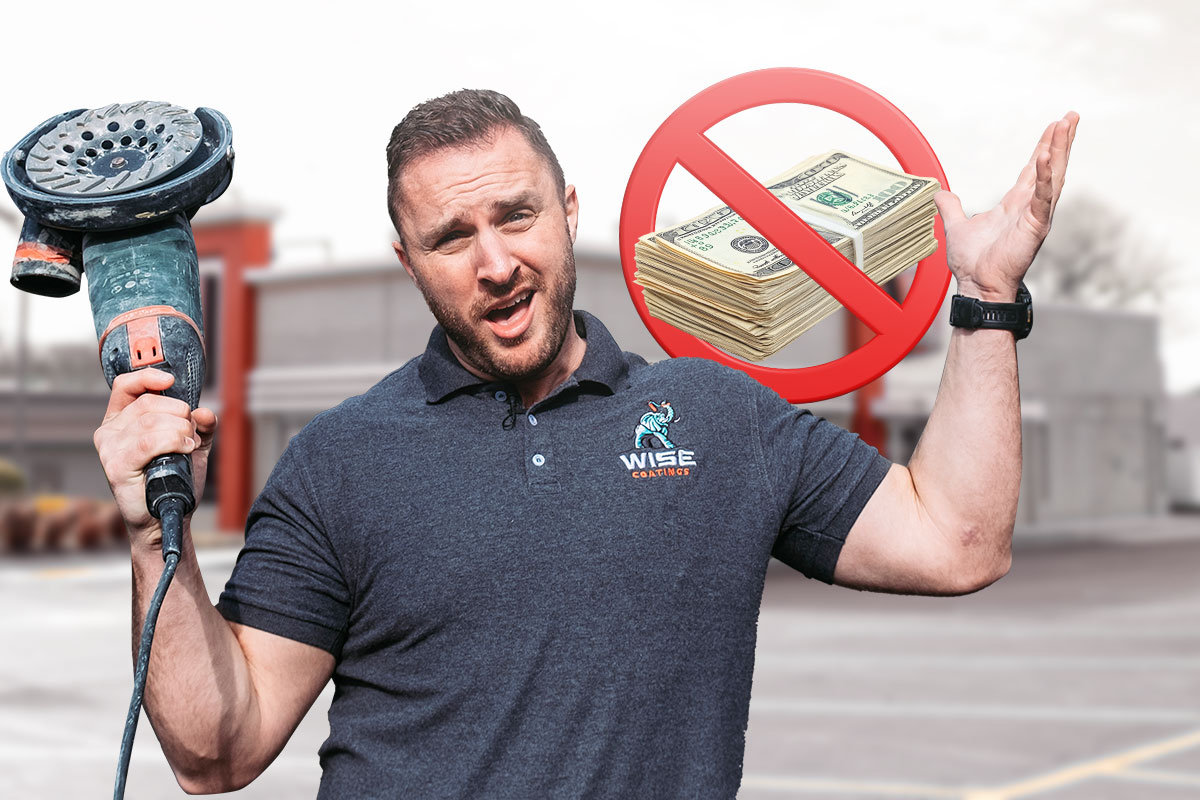
Most franchisors won’t let you. They expect some actual investment. If you find one, let us know, but franchises have requirements for:
- Credit
- Net worth
- Liquid assets
If you have a high net worth but low liquid assets, consider getting a secured loan or creating a corporation with a rollover business startup.
How much does it cost to buy a McDonald’s franchise?
According to the 2020 McDonald’s annual report, total development costs to open a new restaurant were approximately $4.4 million. McDonald’s pays that and rents the equipment and land to the franchisee with a 20-year agreement.
McDonald’s doesn’t sell new franchises to new franchisees because they believe it protects their business to have experienced franchise owners open new locations. You’ll find a ton of answers online pointing to their $45,000 franchise fee and the requirement to have $500,000 of liquid assets.
In addition, you’ll pay 4% per year in royalties to purchase a McDonald’s.
How much money can I make by owning a franchise?
Each year, most franchisees make between $50,000 and $100,000 for every franchise location they own.
How should I prepare to buy a franchise?

Learn as much as you can before approaching the franchisor. Then prepare your financial statements that prove your credit score, net worth, and liquid assets are appropriate.
How does buying a franchise save money?
Buying a franchise removes most of the learning phase of business development. The franchisor has already:
- Created a business plan
- Designed branding
- Conducted market research
- Conducted product research
- Created business systems
- Developed a successful marketing plan
- Proven that the business model is successful
All you have to do is find customers in your area and follow the rules.
How is a franchise different from a chain?
There are several important differences between a franchise and a chain. A single business entity typically owns a chain, while multiple different business entities own franchises. A franchise may also have corporate stores.
For instance, Augusta Lawn Care’s founder Mike Andes owns multiple corporate locations and offers franchises. He told us:
Check out the video below that explains the differences between buying a franchise and starting your own business:
Where can I find the laws governing franchising?
Franchises are governed by the Federal Trade Commission. They specify the features of a business that qualifies as a franchise:
- Promises to provide a trademark or other commercial symbol
- Promises to exercise significant control or provide significant assistance in the operation of the business
- Requires a minimum payment of at least $500 during the first six months of operations
- Outlines the laws franchises must follow
- Provides the necessary items included in the franchise disclosure document
- Abides by the items included in the franchise agreement
It’s crucial to consult with franchise attorneys to understand the legal requirements and documents involved in franchising. Make sure to also read the FTC guidance before buying a franchise.
Live Wealthily Ever After
At this point, we’ve discussed everything from choosing a certain franchise to writing a business plan. We also explained more about the documents you’ll see when buying a franchise.
You now have the information to start buying a franchise. Once you’ve got a few years under your belt, you can start thinking about how to expand, hire more people, or buy more franchises.
What franchises would you like us to interview in the future?

